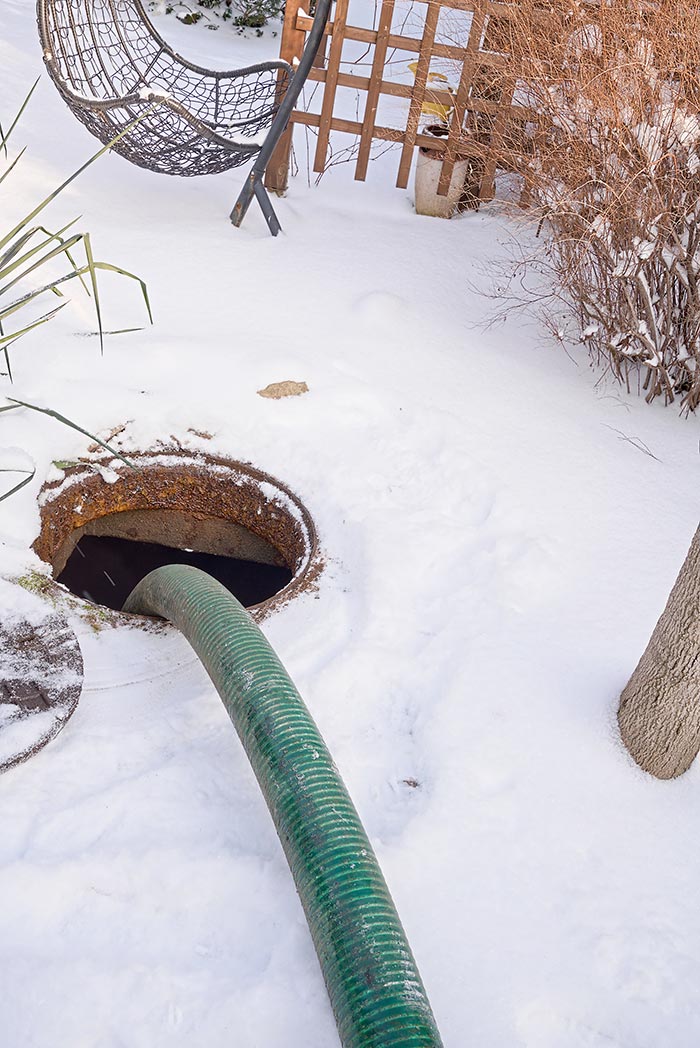
Harsh winter weather can provide septic tanks with problems. From frozen ground, to frozen pipes, unique issues may arise which need to be addressed. Here are some tips to prepare for winter and hopefully avoid problems with your septic tank.
1. Difficulty Reaching Septic Tank to Pump
When the ground freezes or snow accumulates, it creates an extra barrier to reach your tank. Tank pumping and maintenance suddenly become a nuisance when you need to dig through hard or snowy ground. Ideally, you should plan ahead by scheduling tank maintenance during a warmer month.
Another solution is to install a septic tank riser. A riser simplifies this issue by providing an above ground access point to your system and tank. Risers are built to withstand the harsh winter months, providing a sturdy solution. Learn more about risers here.
2. Snow and Soil Pressure on Tank
If snow and soil are compacted and pushed down around your septic system it can cause a number of problems.
Compacted soil and snow:
Does not insulate tank as well, potentially causing a frozen system
May prevent wastewater from filtering and draining properly
Creates pressure over tank and piping which can lead to damage and ultimately freeze easier
Prevention Tips:
Do not drive vehicles or heavy equipment over your tank or drain field. Actually, driving over your tank should be avoided at any time of year, but can cause the most problems in winter months.
Remove snow build up over the system.
Aerate soil around the septic system before winter.
3. Frozen Septic System Pipes or Components
When snow or frost gets around your septic tanks and surrounding parts, then freezes, problems can occur. Particularly, it slows down or prevents the healthy bacteria in your tank from breaking down waste. When wastewater is not broken down properly, it may cause system overload. Also, if the wastewater accumulates in a frozen line, then ruptures, this introduces a major health hazard.
Steps to Prepare:
Insulate your septic tank and system using: a cover, blanket, straw, leaves and/or dirt. Consider covering your leach field too.
Plant vegetation nearby to help shield your tank from the cold.
Run water and use a tank daily.
Keep pipes free from leaks and clogs, so the line stays warm and drainage works properly.
For more information on septic tank inspection, contact Morse Engineering and Construction.
Source: millerofholmes.com
